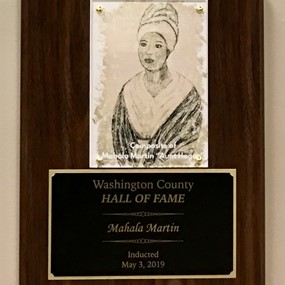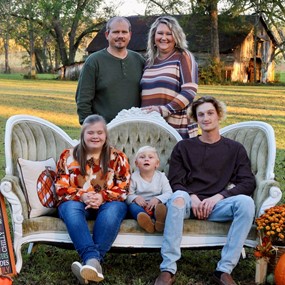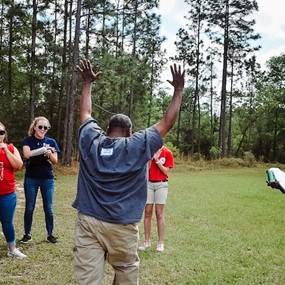Grants help MOWA Band of Choctaw Indians thrive
The MOWA Band of Choctaw Indians is a state-recognized tribe made up of Choctaw Indians of Mobile and Washington counties along the banks of the Mobile and Tombigbee rivers near small southwestern Alabama communities of McIntosh, Mount Vernon, and Citronelle.
The tribe has a Tribal and Housing Authority Office in Mt. Vernon where Project Director Maggie Rivers, a proud member of the tribe, can be found writing grants that will impact her community for years to come. Since Rivers began her job two and a half years ago, she has secured over $4 million in grant funds for the tribe. Rivers considers all grants, big or small, to be important in rural communities where resources are limited. She said grant funds touch all facets of her community, providing everything from help with utility bills to backpacks for children.
Since Rivers began her job two and a half years ago, she has secured over $4 million in grant funds for the tribe. Rivers considers all grants, big or small, to be important in rural communities where resources are limited. She said grant funds touch all facets of her community, providing everything from help with utility bills to backpacks for children.
She shared how she and the staff secured a grant that will pay the mortgage and utilities for qualifying families for up to a year. She added, “Another grant we received provides a $600 voucher for food and $300 toward tribal members’ power bills.” She said the grants have been a tremendous help for families who faced job loss caused by the COVID-19 pandemic.
Beyond necessities, grant funds also help preserve their tribal culture and history. For example, the MOWA Band of Choctaw Indians’ Museum in Mt. Vernon is currently being remodeled after damage from Hurricane Zeta in 2020. As the three-year grant comes to a close, Rivers was overjoyed to share that the museum would be finished in the fall, smiling as she anticipated having bus-loads of children visit the museum to learn about local Native American culture.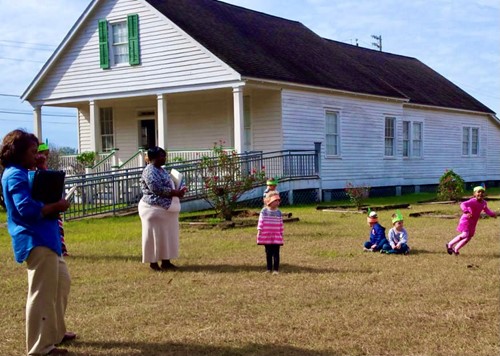
Rivers is perhaps most proud of grants that help remove barriers and give tribal members the opportunity to go to college. Through grants and community partners, members are given the opportunity to have their tuition, books, and supplies covered. Rivers added, “One grant will even provide a $1,500 stipend to assist with child care, fuel, and other necessities.”
One recipient of this education grant money, Kaylin Johnston, said, “The funding I received through the MOWA Band of Choctaw Indians was used to alleviate financial obstacles, and it was greatly beneficial with housing assistance.”
She added, “I am tremendously thankful for the funding assistance given to me by the MOWA Band of Choctaw Indians. Ultimately, my degree completion would not have been possible without the generosity of this financial aid.”
The tribe was also awarded a grant for school-aged children to have the opportunity to pick brand-named backpacks at the beginning of the ‘22-’23 school year. Rivers explained, “It was so heartwarming to see the students choosing their backpacks.”
Currently, Rivers is working on an Energy Efficiency Grant. She shared how the almost 30-year-old homes on the reservation have central units that have not been replaced. While the application is still in the early stages, if the grant is successful, they “will replace the central units in those homes with more energy efficient units. The grant will also allow us to put up street lights as well as several other security features in and around the reservation,” she said.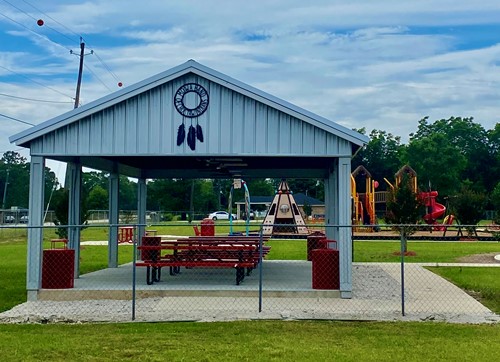
While the Energy Efficiency Grant and the previously mentioned grants are life-changing for the tribe, Rivers tells of the struggles that come with grant writing. The MOWA band of Choctaw Indians is a state-recognized tribe but does not yet have federal recognition. This makes it more difficult to identify eligible grants for the community.
Another challenge is the time it takes to write and administer grants. When Rivers finds a grant to apply for, it could take weeks to complete the application. There are usually only one or two people writing these grants, so it can be challenging to gather the necessary information during the time the application is open.
Rivers explained how she and her co-worker and friend, Lillie Steiner, lean on each other when grant writing becomes tedious and time-consuming.
“I have been known to begin work around 6 a.m., work all through the night, and finally stop around 3 p.m. the next day to finish up on a grant.” She added, “It’s necessary to work while the momentum is flowing.”
Even though the days are long, Rivers said she feels that the most rewarding part of her job is “the joy of seeing people receiving the assistance that you know they need.”
To find out more about the MOWA tribe, visit: https://mowachoctawindians.com
.
Tags: Chatom
